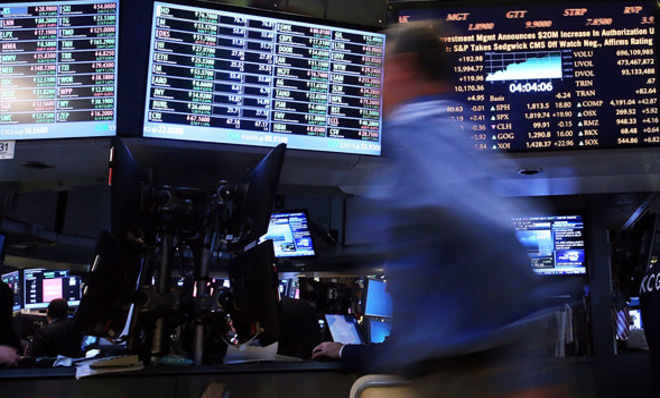What's up with the recent rash of banker suicides?
Some see systemic doom and gloom in the deaths

A free daily email with the biggest news stories of the day – and the best features from TheWeek.com
You are now subscribed
Your newsletter sign-up was successful
Certain sections of the internet are abuzz with the news that a spate of bankers has recently committed suicide. What many of these stories imply is that a new financial crisis may be on the horizon — if bankers are committing suicide en masse, then they must be doing it because of huge trading losses or an impending prosecution.
At first glance, it does appear that something funny is going on. Paul Joseph Watson at Infowars has a run down:
- On January 26, former Deutsche Bank executive Broeksmit was found dead at his South Kensington home after police responded to reports of a man found hanging at a house. According to reports, Broeksmit had "close ties to co-chief executive Anshu Jain."
- Gabriel Magee, a 39-year-old senior manager at JP Morgan's European headquarters, jumped 500ft from the top of the bank’s headquarters in central London on January 27, landing on an adjacent nine story roof.
- Mike Dueker, the chief economist at Russell Investments, fell down a 50 foot embankment in what police are describing as a suicide. He was reported missing on January 29 by friends, who said he had been "having problems at work."
- Richard Talley, 57, founder of American Title Services in Centennial, Colorado, was also found dead earlier this month after apparently shooting himself with a nail gun.
- 37-year-old JP Morgan executive director Ryan Henry Crane died last week.
- Tim Dickenson, a U.K.-based communications director at Swiss Re AG, also died last month, although the circumstances surrounding his death are still unknown. [InfoWars]
This week, as Watson reports, an investment banker at JP Morgan jumped to his death from the roof of the bank's headquarters in Hong Kong. Witnesses said the man went to the roof of the 30-story Chater House in the heart of Hong Kong's central business district, and took the plunge despite attempts to talk him down.
The Week
Escape your echo chamber. Get the facts behind the news, plus analysis from multiple perspectives.

Sign up for The Week's Free Newsletters
From our morning news briefing to a weekly Good News Newsletter, get the best of The Week delivered directly to your inbox.
From our morning news briefing to a weekly Good News Newsletter, get the best of The Week delivered directly to your inbox.
Every incident sounds tragic. But is it really abnormal for the finance industry to experience seven possible suicides in the space of a month?
Let's do a back-of-an-envelope calculation. The U.S. has a suicide rate of about 12 people per 100,000 per year. Roughly 5.9 million people are employed in the American financial sector. Assuming the industry has the same suicide rate as the rest of the population — even with higher-than-average stress levels — one would expect 708 suicides in any given year, or nearly 60 per month in the U.S. alone.
Given that just three of the seven incidents (some of which may not have been suicides) occurred in the U.S., this suggests that the number is not excessive or unusual. Seven hundred suicides perhaps would be cause for raising eyebrows. Not seven.
So this "trend" is more of a case of bloggers and writers conspiracy-mongering without looking properly at the evidence.
A free daily email with the biggest news stories of the day – and the best features from TheWeek.com
Of course, these individuals may have killed themselves after making trading losses, or due to other work-related problems. But that hardly suggests we are on the verge of a financial crash. Lots of traders have made huge trading losses without triggering a financial crash or crisis.
Editor's note: This article has been revised since it was first published in order to more clearly include proper attribution to source material.
John Aziz is the economics and business correspondent at TheWeek.com. He is also an associate editor at Pieria.co.uk. Previously his work has appeared on Business Insider, Zero Hedge, and Noahpinion.